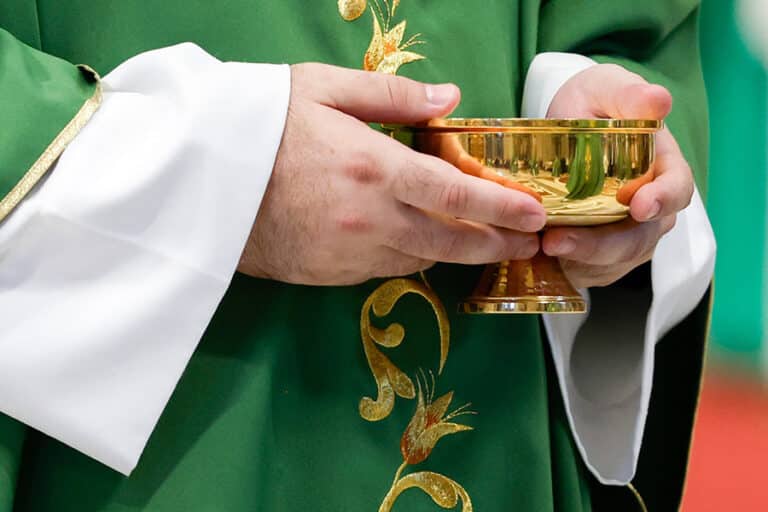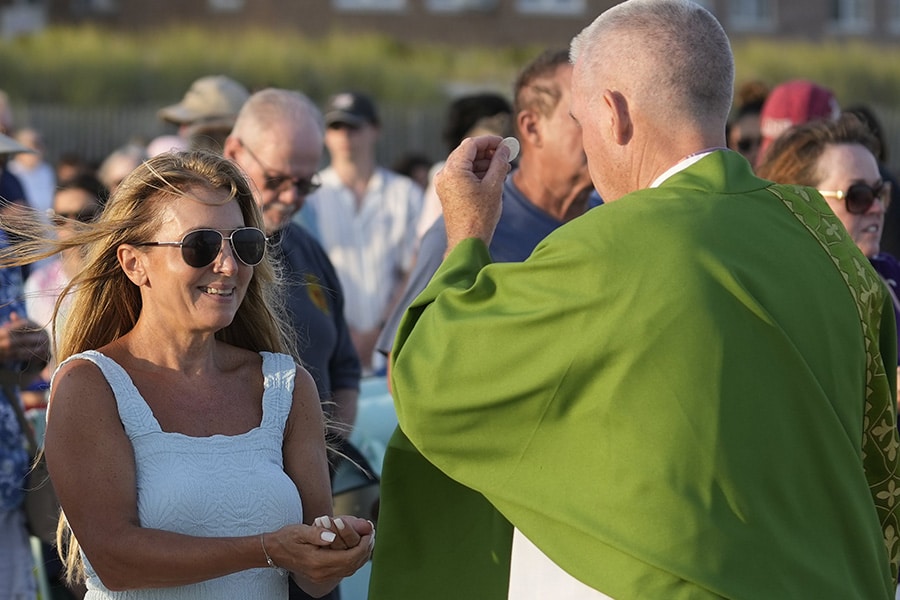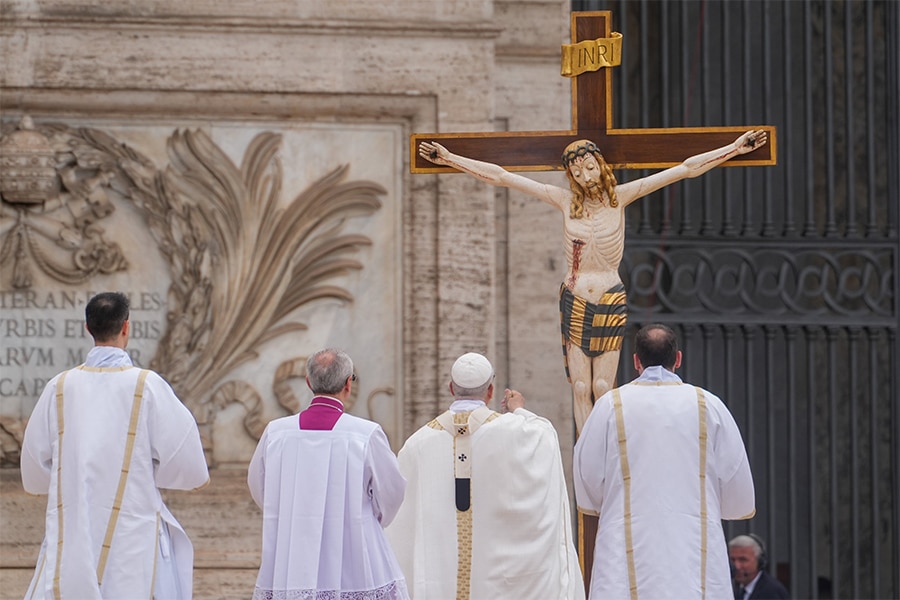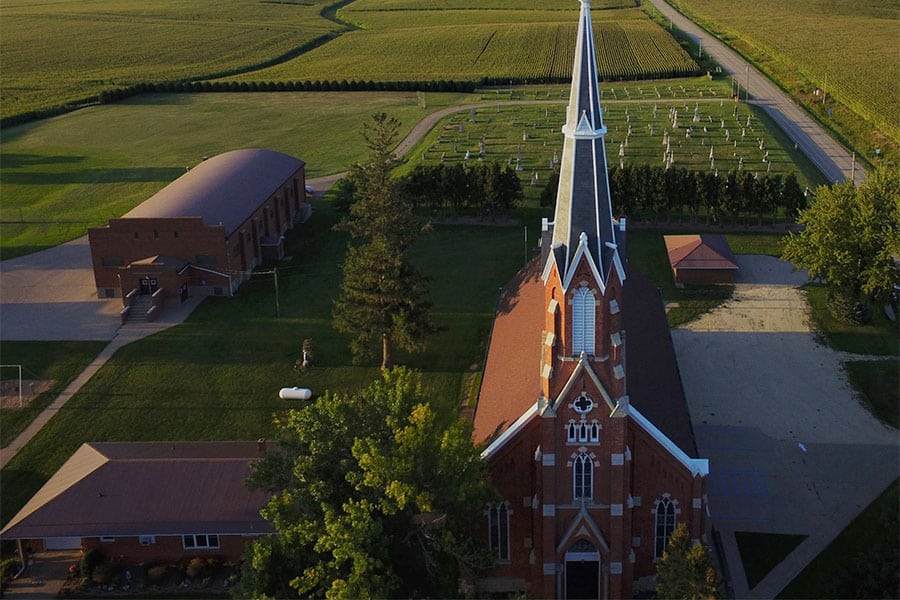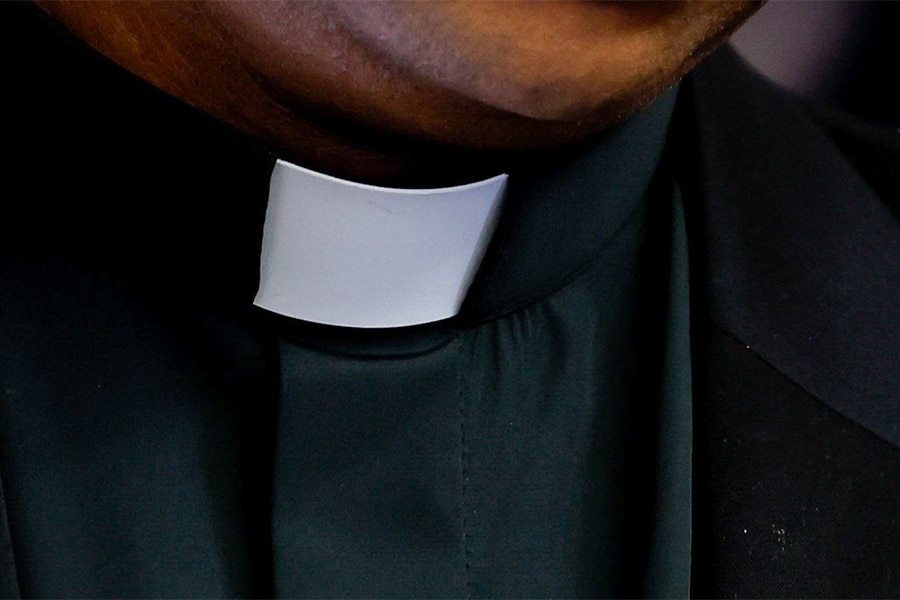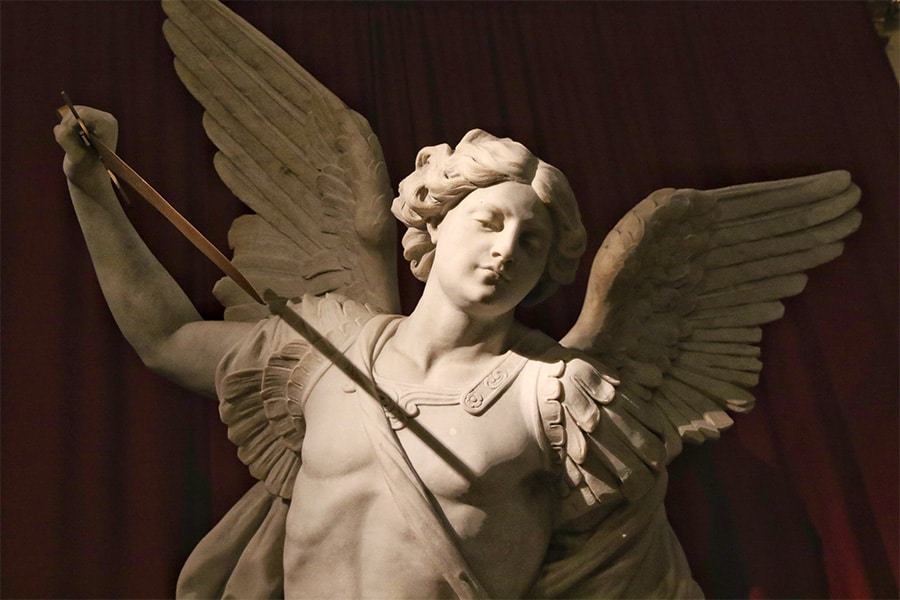Q: We know that Our Lord loves everyone and thus would want to be as close to each person as possible. Can non-Catholics receive Holy Communion since this would help achieve the Lord’s ultimate desire to be within the heart and soul of every human being? My spouse is an Episcopalian and refuses to receive Holy Communion with me at Mass because she feels the church prohibits it. I have been unable to convince her otherwise. Is her position the prevailing one within the Catholic church? (Florida)
A: Your wife is correct here. Under ordinary circumstances, the church does not allow non-Catholics to receive Holy Communion. But this discipline is not meant to “keep people away from Jesus.” Rather, it is intended to safeguard the integrity of the church’s teaching on the Eucharist and to respect the conscience of everyone involved.
Starting with the root of the issue, the Catholic Church believes in the doctrine of the “Real Presence,” meaning that we believe that the bread and wine offered at Mass are changed into the body and blood of Christ in a literal sense. In technical theological terms, this process is called “transubstantiation.”
Most non-Catholic Christians do not understand Holy Communion in these terms. Many Protestant denominations believe that the bread and wine used in their Communion services undergo no change and all, but remain simply bread and wine in every sense, so that Communion is merely a reminder of Jesus’ last supper. Other denominations do have some concept of a real presence, but in a less full sense or in a less defined way than the Catholic teaching.
As practicing Catholics know, the church has many laws and customs designed to reverence and safeguard the real presence of Jesus in the Eucharist and in the reserved Blessed Sacrament. For instance, we genuflect before the tabernacle when we enter a church, and we fast an hour before receiving Communion. And in the Latin (a.k.a. “Roman”) Catholic Church, children are generally not admitted to Holy Communion until they are old enough to understand what and who it is that they are receiving.
Reasoning along these lines, it is common sense that the church would not want to administer Holy Communion to an individual — even another baptized Christian — who was not aware or did not believe that they were receiving the actual, literal body and blood of Christ. This would not be respectful to Jesus in the Blessed Sacrament, even if such a person approached Holy Communion in a spirit of goodwill.
And on the other side of the coin, the real presence of Jesus in the Blessed Sacrament is a fairly radical belief, and it would be unfair and ultimately un-pastoral to “force” this on someone who was not ready to accept it.
Looking more concretely at the church’s law on the subject, Canon 844, 1 plainly states that: “Catholic ministers [e.g. priests and deacons] may lawfully administer the sacraments only to Catholic members of Christ’s faithful.”
Yet this same canon does go on to carve out a few limited exceptions. Most relevant to your question, Canon 844, 4 tells us that Protestants may potentially receive Communion or the other sacraments if they are “in danger of death” or if the local bishops discern that there is some “grave and pressing need.” But this is only “provided that they demonstrate the catholic faith in respect of these sacraments.”
This sort of situation, where a Protestant actually believes fully in our Catholic teaching on the Eucharist and is also at the point of death or in some similarly extreme circumstance, is certainly not the scenario you would see in an average Sunday Mass. But if a Protestant did believe fully in the Real Presence and wished to receive Jesus in Holy Communion in their ordinary everyday life, logically it would seem that the best thing for them to do is to begin the process of entering fully into the Catholic Church.
Read More Question Corner
Copyright © 2025 OSV News

